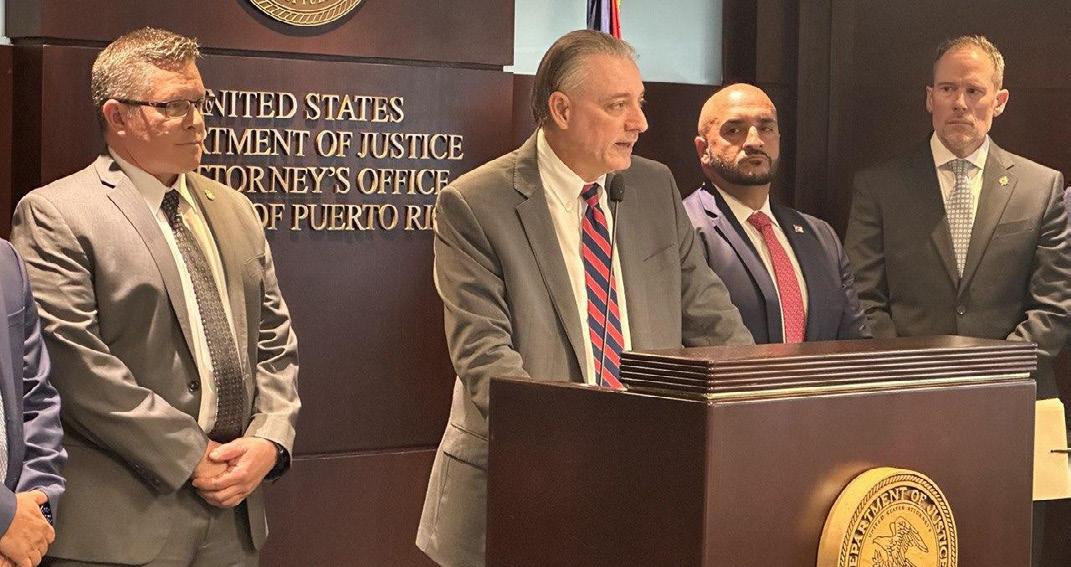
1 minute read
Two are indicted for violations of federal environmental laws at Jobos Bay
By THE STAR STAFF
Afederal grand jury for the district of Puerto Rico has issued two separate indictments against Luis Enrique Rodríguez Sánchez and Pedro Luis Bones Torres for violations of the Clean Water Act and the Rivers and Harbors Act.
Advertisement
W. Stephen Muldrow, United States attorney for the District of Puerto Rico, and Todd Kim, assistant attorney general and head of the U.S. Department of Justice’s Environment and Natural Resources Division, made the announcement Thursday. The grand jury issued the indictments Wednesday.
The charges relate to the illegal construction and deposit of materials in U.S. wetlands and waters in the area of the Jobos Bay National Estuarine Research Reserve (the Jobos Estuarine Reserve) and the Las Mareas community in Salinas.
Several federal agencies are participating in the investigation into environmental crimes in the Jobos Estuarine Reserve and the Las Mareas community, including the Criminal Investigation Division of the Environmental Protection Agency, the FBI, the U.S. Department of the Army Criminal Investigation Division, the National Oceanic and Atmospheric Administration’s Office of Law Enforcement and the U.S.
Fish and Wildlife Service’s Office of Law Enforcement.
The indictments state that, from approximately January 2020 through October 2022, Rodríguez Sánchez and Bones Torres knowingly dumped fill material from excavation machinery in wetlands and U.S. waters in violation of the Clean Water Law.
In addition, Rodríguez Sánchez and Bones Torres were accused of building structures within U.S. navigable waters without authorization from the secretary of the Army, in violation of the Rivers and Ports Law.
The Clean Water Act was passed by Congress in 1972 to protect and maintain the integrity of U.S. waters. The main purpose of the law is to ensure the restoration and maintenance of the chemical, physical and biological integrity of the country’s waters. The law prohibits the discharge of any pollutant or filler material into U.S. waters, except when a U.S. permit is obtained.










